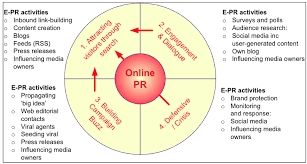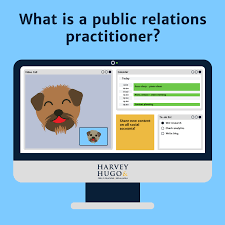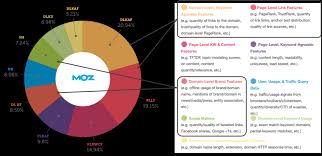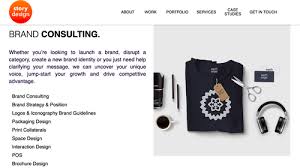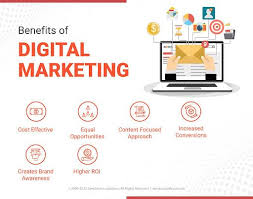Digital PR: Enhancing Communication in the Digital Age
In today’s fast-paced and interconnected world, the way we communicate has drastically changed. With the rise of digital platforms and social media, businesses and individuals now have unprecedented opportunities to connect with their target audiences on a global scale. This shift has given birth to a powerful discipline known as digital PR.
Digital PR encompasses the strategic use of online channels to enhance communication, build brand reputation, and engage with key stakeholders. It goes beyond traditional public relations by leveraging the vast reach and interactive nature of digital platforms to create meaningful connections.
One of the key advantages of digital PR is its ability to amplify messages. Through targeted outreach efforts, businesses can secure media coverage on reputable online publications, influential blogs, and social media platforms. This exposure not only increases brand visibility but also helps establish credibility and authority within a specific industry.
Another significant aspect of digital PR is its focus on building relationships with online influencers. These individuals have amassed large followings across various social media platforms and can act as powerful advocates for brands. By collaborating with influencers through sponsored content or partnerships, businesses can tap into their engaged audiences and benefit from increased brand awareness and consumer trust.
Moreover, digital PR allows for real-time engagement with target audiences. Social media platforms provide a direct line of communication between brands and consumers, enabling immediate feedback and interaction. This interactive element helps foster a sense of authenticity, transparency, and trust in brand-consumer relationships.
Digital PR also plays an essential role in managing brand reputation in the digital landscape. With news spreading rapidly online, businesses need to be proactive in monitoring their online presence and addressing any potential issues promptly. Digital PR professionals employ various tools and techniques to track mentions, manage crises effectively, and protect brand image.
Furthermore, data-driven insights are integral to successful digital PR campaigns. Through analytics tools, professionals can measure the impact of their efforts by tracking website traffic, engagement rates on social media, and conversions. This data empowers businesses to make informed decisions, optimize their strategies, and achieve better results.
In conclusion, digital PR has revolutionized the way businesses communicate and engage with their audiences. By harnessing the power of digital platforms, businesses can amplify their messages, build relationships with influencers, engage in real-time conversations with consumers, manage brand reputation effectively, and utilize data-driven insights for continuous improvement.
At SSPR Consultant, we understand the importance of digital PR in today’s digital age. Our team of experts is dedicated to helping businesses navigate the complexities of online communication and achieve their goals. Contact us today to discover how we can elevate your brand’s digital presence through strategic digital PR initiatives. Together, let’s embrace the possibilities of the digital world and unlock new opportunities for growth and success.
8 Essential Tips for Effective Digital PR in the UK
- Develop relationships with key influencers in your industry – this will help you to build your brand’s credibility and visibility.
- Use social media platforms such as Twitter, Facebook and Instagram to reach out to potential customers and increase brand awareness.
- Create content that is engaging, relevant, interesting and shareable – this will help you to gain more followers and create a buzz around your brand.
- Monitor conversations on social media related to your industry or company – this will give you an insight into what people are saying about you or the topics that they are interested in.
- Utilise SEO techniques such as keyword research and optimising content for search engines – this will help you to rank higher in search engine results pages (SERPs).
- Take advantage of digital PR tools such as press releases, blog posts, podcasts etc., which can be used to promote your message in a targeted way across multiple channels simultaneously.
- Track the success of campaigns using analytics software such as Google Analytics – this will allow you to measure how effective each campaign has been so that you can adjust accordingly for future campaigns if necessary..
- Engage with customers regularly via email marketing campaigns – this will keep them informed about any new products or services that may be available from your company, as well as offering them special offers or discounts if applicable
Develop relationships with key influencers in your industry – this will help you to build your brand’s credibility and visibility.
Developing Relationships with Key Influencers: Boosting Brand Credibility and Visibility in the Digital PR Landscape
In the ever-evolving digital PR landscape, building strong relationships with key influencers has become an essential strategy for businesses looking to enhance their brand’s credibility and visibility. These influencers, who have amassed a loyal following and established themselves as industry experts, hold immense power in shaping consumer opinions and driving engagement.
One of the primary benefits of collaborating with influencers is the credibility they bring to your brand. When an influencer endorses or mentions your products or services, their audience perceives it as a genuine recommendation from a trusted source. This endorsement acts as a stamp of approval, instantly boosting your brand’s credibility in the eyes of potential customers.
Moreover, influencers have built highly engaged communities around their personal brands. By partnering with them, you gain access to these captive audiences who are genuinely interested in the influencer’s content and recommendations. This targeted exposure allows you to reach potential customers who are more likely to resonate with your brand message and convert into loyal customers.
Influencers also possess extensive knowledge about their respective industries. By developing relationships with them, you can tap into their expertise and gain valuable insights into market trends, consumer preferences, and emerging opportunities. This knowledge can help you refine your digital PR strategies and ensure that your brand remains relevant and competitive.
Additionally, when influencers share content related to your brand or engage in collaborations such as sponsored posts or product reviews, they expose your business to their vast networks. This exposure not only increases brand visibility but also drives traffic to your website or social media profiles. As a result, you can expand your reach beyond your existing audience and attract new prospects who may have otherwise been unaware of your offerings.
Building relationships with key influencers is not just about one-off collaborations; it is about nurturing long-term partnerships based on mutual trust and shared values. By investing time in understanding an influencer’s content, engaging with their posts, and providing value to them, you can establish a genuine connection. This connection goes beyond transactional interactions and creates a foundation for ongoing collaboration and support.
In conclusion, developing relationships with key influencers in your industry is a powerful strategy to enhance your brand’s credibility and visibility in the digital PR landscape. Through their endorsements, access to engaged audiences, industry expertise, and wider exposure, influencers can help you establish a strong brand presence and drive meaningful results.
At SSPR Consultant, we understand the importance of influencer relationships in digital PR. Our team of experts can help you identify relevant influencers in your industry, develop impactful collaborations, and leverage their influence to elevate your brand. Contact us today to unlock the potential of influencer marketing and take your digital PR efforts to new heights. Together, let’s build lasting connections that fuel your brand’s growth and success.
Harness the Power of Social Media for Digital PR Success
In the realm of digital PR, social media platforms have become indispensable tools for businesses to connect with their target audience and elevate brand awareness. With millions of active users worldwide, platforms like Twitter, Facebook, and Instagram offer unparalleled opportunities to engage with potential customers and establish a strong online presence.
One of the key advantages of using social media for digital PR is its ability to reach a vast audience. These platforms provide businesses with a direct line of communication to engage with potential customers from all corners of the globe. By crafting compelling content and sharing it strategically, businesses can attract attention, generate interest, and ultimately increase brand awareness.
Twitter, known for its concise messaging format, is an excellent platform for real-time engagement. By leveraging trending topics or relevant hashtags, businesses can join conversations and showcase their expertise in specific areas. Engaging with users through retweets, replies, and thoughtful insights helps build credibility and fosters a positive brand image.
Facebook offers a more comprehensive platform for businesses to share diverse content formats such as articles, videos, images, and live broadcasts. Through consistent posting on Facebook Pages or groups related to their industry or target audience’s interests, businesses can establish themselves as thought leaders while fostering meaningful interactions with followers.
Instagram’s visual nature makes it ideal for showcasing products or services in an engaging way. By creating visually appealing content that aligns with their brand identity and values, businesses can captivate their audience’s attention while building an aspirational image around their offerings. Utilizing features like Stories or IGTV allows for more immersive experiences that resonate with followers.
To make the most out of social media platforms in digital PR efforts, it is crucial to understand your target audience’s preferences and habits on each platform. Tailoring content specifically for each platform ensures maximum impact and engagement. Consistency in posting schedules also helps maintain visibility while nurturing a loyal following.
Additionally, actively monitoring social media platforms for mentions, comments, and messages allows businesses to respond promptly and demonstrate their commitment to customer satisfaction. Engaging in conversations and addressing queries or concerns in a timely manner helps build trust and fosters positive relationships with potential customers.
In conclusion, leveraging social media platforms such as Twitter, Facebook, and Instagram is an essential strategy for businesses aiming to boost brand awareness through digital PR. By creating compelling content, engaging with users, and maintaining an active online presence, businesses can effectively reach out to potential customers and establish a strong brand identity in the digital landscape. Embrace the power of social media today and unlock new opportunities for growth and success in your digital PR endeavors.
Create content that is engaging, relevant, interesting and shareable – this will help you to gain more followers and create a buzz around your brand.
Creating Engaging and Shareable Content: The Key to Digital PR Success
In the realm of digital public relations, one valuable tip stands out: creating content that is engaging, relevant, interesting, and shareable. This simple yet powerful strategy can help you gain more followers and create a buzz around your brand.
In today’s digital landscape, where attention spans are shorter than ever and competition for online visibility is fierce, it’s crucial to captivate your target audience with content that resonates with them. By doing so, you can build stronger connections, increase brand loyalty, and ultimately expand your reach.
Engaging content is the cornerstone of successful digital PR efforts. It captures the interest of your audience and encourages them to interact with your brand. Whether it’s through thought-provoking articles, visually appealing infographics, or entertaining videos, the key is to provide value and evoke emotions that resonate with your target audience.
Relevance is another crucial factor in creating effective content. Understanding your audience’s needs, interests, and pain points allows you to tailor your messaging accordingly. By addressing their specific challenges or providing solutions to their problems, you position yourself as a trusted resource and establish credibility within your industry.
But being relevant alone isn’t enough – you must also make sure that your content is interesting. The digital landscape is saturated with information competing for attention. To cut through the noise, you need to offer something unique or present information in an engaging way that captures the imagination of your audience.
Lastly, shareability plays a significant role in expanding the reach of your content. When people find value in what they consume online, they are more likely to share it with others. By creating content that sparks conversations or provides insights worth sharing, you can tap into the power of social media networks as your audience becomes advocates for your brand.
Remember that creating engaging and shareable content requires a deep understanding of your target audience’s preferences and behaviours. Conducting thorough research, monitoring trends, and analyzing data can help you uncover what resonates with your audience and guide your content creation efforts.
In the digital PR landscape, where attention is a valuable commodity, creating content that is engaging, relevant, interesting, and shareable is essential. It not only helps you gain more followers but also creates a buzz around your brand. So invest time and effort into crafting content that captivates your audience, addresses their needs, and inspires them to share it with others. By doing so, you can unlock the full potential of digital PR and propel your brand to new heights of success.
Monitoring Social Media Conversations: Unlocking Valuable Insights for Digital PR
In the fast-paced world of digital PR, staying ahead of the game requires a keen understanding of what people are saying about your industry or company. One powerful tip to achieve this is by actively monitoring conversations on social media platforms. This practice not only provides you with real-time insights into public sentiment but also helps you identify emerging trends and topics that resonate with your target audience.
When you monitor social media conversations related to your industry or company, you gain valuable insights into how people perceive your brand and the topics that interest them. By keeping a close eye on these conversations, you can uncover opportunities to engage with potential customers and address any concerns or questions they may have.
One of the key benefits of monitoring social media conversations is the ability to proactively manage your brand’s reputation. By promptly addressing any negative comments or issues raised by users, you can demonstrate your commitment to customer satisfaction and showcase your brand’s responsiveness. Additionally, positive feedback and praise should be acknowledged and celebrated, as they help build credibility and trust among your audience.
Moreover, monitoring social media conversations allows you to identify emerging trends and topics within your industry. By staying informed about what people are talking about, you can tailor your digital PR strategies to align with current interests and demands. This enables you to create content that resonates with your target audience, positioning yourself as a thought leader in the field.
To effectively monitor social media conversations, there are various tools available that can simplify the process. These tools enable you to track mentions of your brand or relevant keywords across multiple platforms, providing a comprehensive overview of public sentiment. Additionally, setting up alerts for specific keywords or hashtags ensures that you never miss an important conversation happening in real-time.
In conclusion, monitoring social media conversations related to your industry or company is an essential practice in digital PR. It offers invaluable insights into public perception, helps manage brand reputation, and allows you to stay ahead of emerging trends. By actively engaging with your audience on social media, you can build meaningful connections, address concerns promptly, and position your brand as a trusted authority in your industry.
At SSPR Consultant, we understand the significance of monitoring social media conversations in the digital PR landscape. Our team of experts can help you navigate the complexities of social media monitoring and leverage these insights to enhance your digital PR strategies. Contact us today to discover how we can assist you in unlocking the power of social media for your brand’s success. Together, let’s harness the potential of social media conversations and drive impactful results.
Utilise SEO techniques such as keyword research and optimising content for search engines – this will help you to rank higher in search engine results pages (SERPs).
Enhancing Digital PR with SEO: Unlocking Higher Rankings in SERPs
In the ever-expanding digital landscape, it’s not enough to simply have a strong online presence. To truly stand out and reach your target audience effectively, it’s crucial to integrate SEO techniques into your digital PR strategy. By utilising SEO practices such as keyword research and content optimisation, you can significantly improve your website’s visibility and rank higher in search engine results pages (SERPs).
Keyword research forms the foundation of successful SEO. By identifying the keywords and phrases that are relevant to your industry, products, or services, you can understand what your target audience is searching for. This knowledge allows you to create content that aligns with their interests and needs, increasing the chances of attracting organic traffic to your website.
Once you have identified the relevant keywords, it’s essential to optimise your content accordingly. This involves strategically incorporating these keywords into your website’s copy, meta tags, headings, and URLs. By doing so, search engines can better understand the relevance and value of your content in relation to users’ search queries.
Optimising content for search engines not only helps improve visibility but also enhances user experience. When users find informative and engaging content that directly addresses their queries or concerns, they are more likely to stay on your website longer, explore other pages, and potentially convert into customers or brand advocates.
Additionally, incorporating SEO techniques into digital PR efforts can lead to valuable backlinks from authoritative websites. When other reputable websites link back to your content or mention your brand in their articles or blog posts, it signals credibility and authority to search engines. This can positively impact your website’s rankings in SERPs.
By integrating SEO practices into digital PR strategies, businesses can achieve several benefits. Firstly, ranking higher in SERPs increases organic visibility and drives more targeted traffic to their websites. This improved visibility also enhances brand awareness among potential customers who may not have been previously aware of their offerings.
Secondly, higher rankings in search results establish trust and credibility. When users see a website appearing at the top of search results, they are more likely to perceive it as a reliable and authoritative source. This can positively impact brand perception and increase the likelihood of users engaging with your content or making a purchase.
Lastly, SEO techniques provide valuable insights into consumer behaviour and preferences. By analysing keyword data and monitoring website analytics, businesses can gain a deeper understanding of their target audience’s interests, needs, and search patterns. This knowledge can inform not only digital PR strategies but also overall marketing efforts.
In conclusion, integrating SEO techniques such as keyword research and content optimisation into digital PR strategies is essential for businesses aiming to improve their online visibility and rank higher in SERPs. By understanding what your target audience is searching for and creating valuable content that aligns with their interests, you can attract organic traffic, enhance user experience, build credibility, and ultimately achieve your digital PR goals. Embrace the power of SEO in your digital PR efforts today and unlock new opportunities for success in the competitive online landscape.
Take advantage of digital PR tools such as press releases, blog posts, podcasts etc., which can be used to promote your message in a targeted way across multiple channels simultaneously.
Maximizing Digital PR: Harnessing the Power of Tools for Effective Communication
In the realm of digital PR, utilizing the right tools can make all the difference in effectively promoting your message to a wider audience. With the advent of technology, businesses now have access to a plethora of digital PR tools that enable them to amplify their brand’s voice across multiple channels simultaneously. Here, we explore how leveraging tools such as press releases, blog posts, podcasts, and more can enhance your digital PR strategy.
Press releases remain a valuable tool in the digital age. They offer a concise and structured format for sharing news and updates about your business with journalists, bloggers, and other media professionals. By crafting compelling press releases and distributing them through online platforms or wire services, you can ensure that your message reaches targeted audiences swiftly and efficiently.
Blogs have also emerged as an influential communication medium. Creating engaging blog posts allows you to share valuable insights, industry expertise, and thought leadership with your target audience. By consistently publishing high-quality content on your blog or contributing guest posts on relevant industry blogs, you can establish yourself as an authoritative voice within your field while driving traffic to your website.
Podcasts have experienced tremendous growth in recent years. They provide a unique opportunity to connect with audiences through audio storytelling. Hosting or participating in podcasts related to your industry allows you to reach new listeners who are actively seeking informative and engaging content. By sharing your expertise and experiences in this format, you can build credibility and expand brand awareness.
Social media platforms are essential channels for digital PR activities. Leveraging social media tools enables you to promote your message directly to highly engaged audiences while fostering meaningful interactions with followers. Through platforms like Twitter chats or Facebook Live sessions, you can engage in real-time conversations, answer questions, and establish connections with potential customers or industry influencers.
Digital PR tools also include media monitoring platforms that allow you to track mentions of your brand across various online channels. These tools provide valuable insights into how your brand is perceived, enabling you to respond promptly to feedback, address potential issues, and manage your online reputation effectively.
Additionally, email marketing tools play a crucial role in digital PR efforts. By building a targeted email list and sending out regular newsletters or updates, you can keep your audience informed about new developments, product launches, or upcoming events. This direct form of communication helps nurture relationships with existing customers and prospects.
In conclusion, digital PR tools offer immense potential for businesses to promote their messages effectively across multiple channels simultaneously. By harnessing the power of press releases, blog posts, podcasts, social media platforms, media monitoring tools, and email marketing campaigns, you can amplify your brand’s voice and connect with your target audience in a targeted and impactful manner. Embracing these tools as part of your digital PR strategy will help you stay ahead in the ever-evolving digital landscape while achieving your communication goals.
Track the success of campaigns using analytics software such as Google Analytics – this will allow you to measure how effective each campaign has been so that you can adjust accordingly for future campaigns if necessary..
Tracking Success: The Power of Analytics in Digital PR Campaigns
In the ever-evolving world of digital PR, it’s crucial to measure the success of your campaigns to ensure maximum impact and return on investment. One powerful tool that can help you achieve this is analytics software, such as Google Analytics. By tracking and analyzing key metrics, you gain valuable insights into the effectiveness of your campaigns, enabling you to make data-driven decisions for future initiatives.
Analytics software provides a wealth of information about your digital PR efforts. It allows you to track various metrics, including website traffic, user engagement, conversion rates, and more. By monitoring these metrics over time, you can gauge the impact of your campaigns and identify areas for improvement.
One key benefit of using analytics software is the ability to measure campaign effectiveness. You can track how many visitors were driven to your website through specific PR activities, such as press releases or influencer partnerships. This data helps you understand which channels and tactics are most successful in generating traffic and attracting your target audience.
Additionally, analytics software provides insights into user behavior on your website. You can analyze how visitors navigate through your site, which pages they spend the most time on, and where they drop off. This information allows you to optimize your website’s user experience and tailor content to better engage visitors.
Conversion tracking is another critical aspect of analytics software. By setting up conversion goals, such as newsletter sign-ups or product purchases, you can measure how effectively your campaigns are driving desired actions. This data helps you assess the ROI of different PR activities and allocate resources accordingly.
Furthermore, analytics software enables A/B testing. By comparing different versions of landing pages or calls-to-action, you can determine which elements resonate best with your audience and drive higher conversions. This iterative approach allows you to constantly refine and improve your campaigns based on real-time data.
By regularly monitoring analytics data throughout a campaign’s duration, you can make timely adjustments if necessary. If certain tactics or channels aren’t delivering the desired results, you can pivot and allocate resources to more effective strategies. This flexibility ensures that your campaigns remain dynamic and responsive to evolving market conditions.
In summary, incorporating analytics software into your digital PR efforts is essential for measuring campaign success and making informed decisions. By tracking key metrics, such as website traffic, user engagement, and conversion rates, you gain valuable insights into the effectiveness of your campaigns. This data empowers you to optimize strategies, allocate resources wisely, and achieve better results in future initiatives.
At SSPR Consultant, we understand the power of analytics in digital PR. Our team of experts utilizes industry-leading tools to track and measure the success of our clients’ campaigns. Contact us today to discover how we can help you harness the power of analytics for your digital PR initiatives. Together, let’s drive measurable results and elevate your brand’s online presence.
Engage and Connect: The Power of Email Marketing in Digital PR
In the ever-evolving digital landscape, staying connected with your customers is crucial for building strong relationships and driving business growth. One effective way to achieve this is through regular engagement via email marketing campaigns. By leveraging the power of email, businesses can keep their customers informed about new products or services while offering exclusive deals and discounts.
Email marketing campaigns provide a direct line of communication to your customer’s inbox, allowing you to share important updates and announcements. Whether it’s launching a new product line, introducing a service upgrade, or sharing industry insights, email campaigns enable you to keep your customers in the loop and maintain their interest in your brand.
Moreover, by offering special offers or discounts exclusively through email, you create a sense of exclusivity and reward for your loyal customers. This not only encourages repeat purchases but also fosters a feeling of being valued and appreciated. Customers who feel appreciated are more likely to remain engaged with your brand and become advocates for it.
Email marketing campaigns also offer an opportunity for personalization. By segmenting your customer base based on their preferences or purchase history, you can tailor your messages to resonate with each group individually. This level of personalization enhances the customer experience by delivering relevant content that meets their specific needs.
Additionally, email marketing allows you to track engagement metrics such as open rates, click-through rates, and conversions. These insights provide valuable data on customer behaviour and preferences, enabling you to refine your strategies over time. By analyzing these metrics, you can optimize future campaigns for better results and ensure that your messages are resonating with your audience.
To make the most of email marketing campaigns in digital PR, it’s essential to strike a balance between informative content and promotional offers. While it’s important to keep customers updated about new products or services available from your company, bombarding them with constant sales pitches may lead them to unsubscribe or lose interest. Focus on providing valuable information, addressing pain points, and offering genuine value to your customers.
In conclusion, engaging with customers regularly through email marketing campaigns is a powerful tool in digital PR. It allows you to keep your customers informed about new offerings while offering them exclusive deals and discounts. By personalizing your messages and tracking engagement metrics, you can refine your strategies and deliver content that resonates with your audience. Embrace the power of email marketing and strengthen the connection with your customers to drive business success.
At SSPR Consultant, we understand the importance of effective email marketing in digital PR. Our team can help you develop impactful campaigns that engage and connect with your target audience. Contact us today to explore how we can elevate your email marketing efforts and drive meaningful results for your business.




